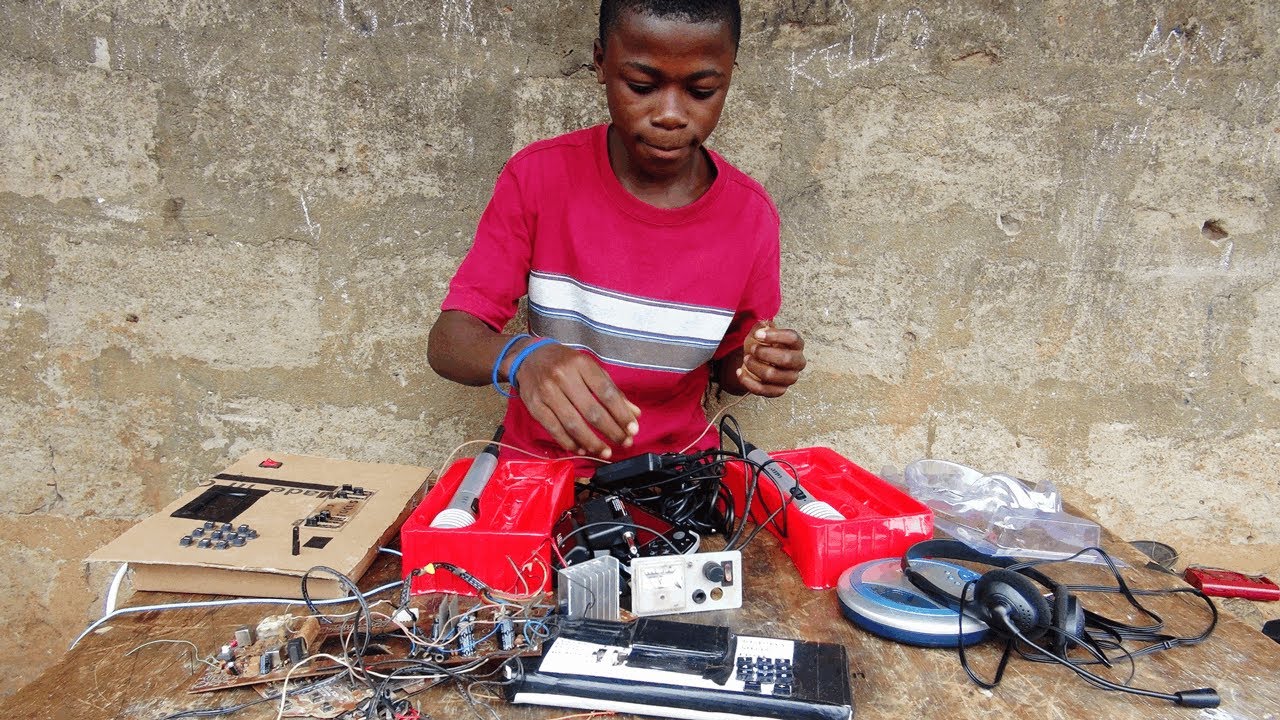It is not every day you come across a 13 year-old kid who has an interest in not just science – but engineering. Many kids around the world have no idea of engineering at that age; talk less of having an interest in it.
For Kelvin Doe, however, having an interest in engineering is beneath his standards. He not only taught himself engineering, but designed a radio station from scraps, which plays music and broadcasts news.
The kid from Sierra Leone designed a radio station and generator from scraps he picked from a dumpsite, and it didn’t take long before his genius caught international attention.
Born on 26 October 1996 in a rural area of Freetown, Sierra Leone, Kelvin is the youngest of five children. Concerned by the lack of electricity and potable water in his community, he started picking up scrap metals and discarded devices, from which he built batteries and transmitters.
He was a finalist in the GMin’s Innovate Salone idea competition, where he built a generator from metal scraps. He chose to build a generator because he had a burning desire to solve the problem of electricity that plagued his community in Sierra Leone.
He is a self-taught engineer and built his first radio transmitter, a three-channel mixer and microphone receiver at the age of 13. He would then go on to create a community radio station that broadcasts news and plays music. He named himself “DJ Focus”.
Kelvin gained an international reputation in 2012 when an educational YouTube channel named THNKR shared his amazing story with the world. In no time, prominent media agencies such as CNN, NBC News, and The Huffington Post shared his story.
Seeing his story, David Sengeh, a graduate from MIT, mentored and helped him become one of the most popular African inventors and entrepreneurs.
At the age of 16, Kelvin was invited by the United States of America to participate in the “Visiting Practitioner’s Program” at MIT, making him the youngest person in the world to achieve the feat.
Since his shot to international prominence, Kelvin has achieved many more feats. He signed a $100,000 solar solution project with a Canadian Wi-Fi company to develop and test the project in 2013.
As of today, he continues his studies and is working on engineering projects and businesses. He maintains a revered position as one of the most respected young African inventors. He currently lives in Canada.
Kelvin Doe’s story serves as a huge inspiration and highlights the lessons to increase innovations among young people in Africa.
Young people need encouragement and support from society because one of the most significant catalysts to Kelvin’s success was the encouragement he received from his community after creating the Radio Station.
Another critical aspect is the use of media for good. For example, Kelvin would have been unknown if someone did not share his story online.
There are millions of young ‘Kelvins’ scattered across the continent of Africa. We hope the inspiring story of Kelvin Doe serves as a lesson for the government and citizens to take a step in increasing innovation among young people across the African continent.












